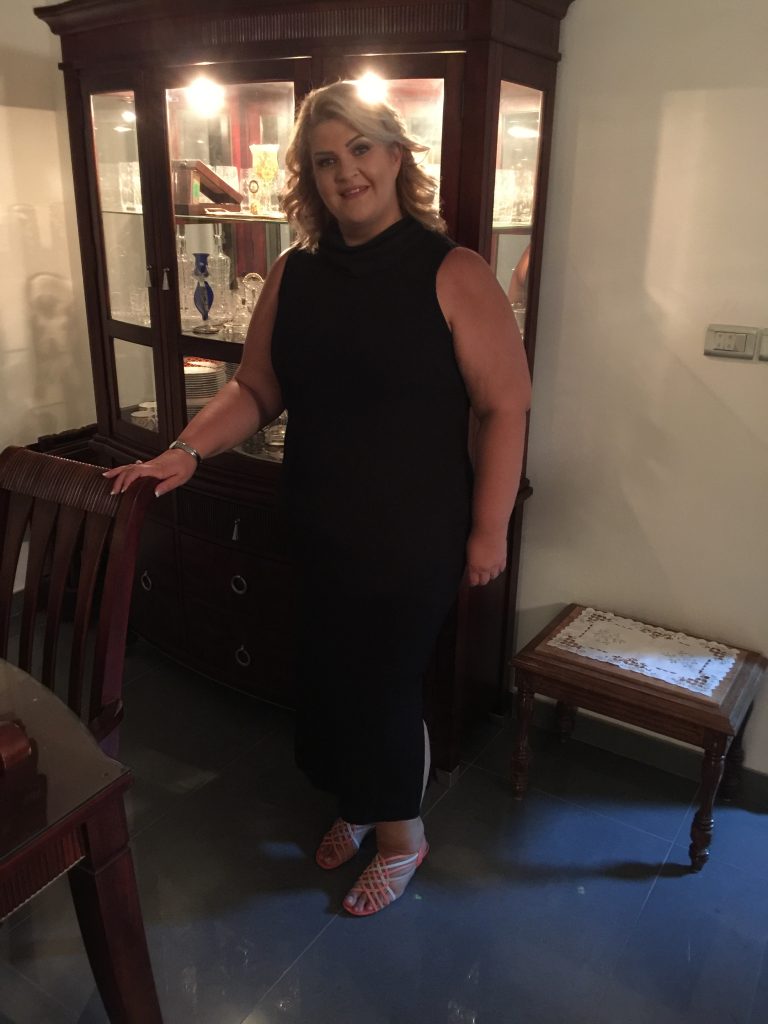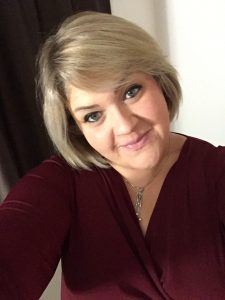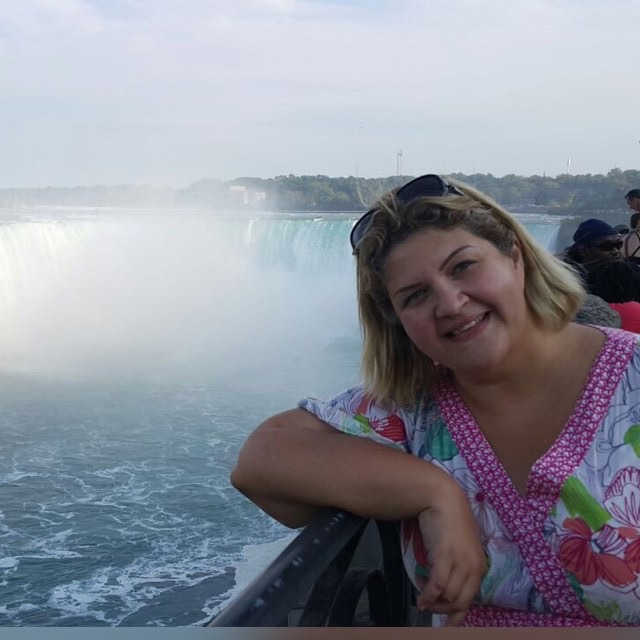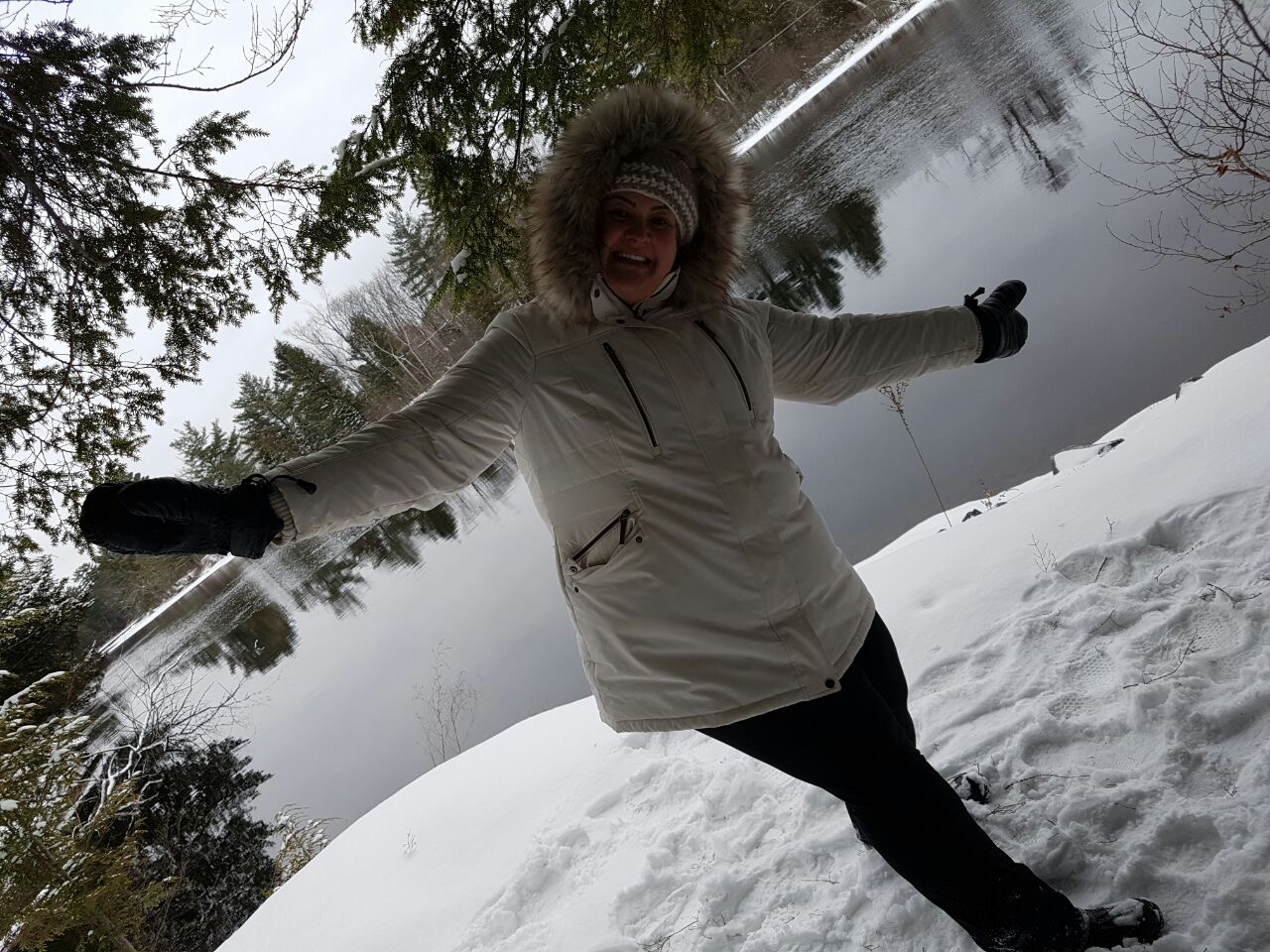This week in our Women Day series, we have another special lady with us with her unique story through her Masters with Robert Kennedy College.
Manal Al-Khaled is a graduate of the MA in Leading Innovation and Change (MALIC) programme, York St John University, UK. This programme was revamped and is now offered 100% online as MBA programme in Leading Innovation and Change.

Who is …
A short profile:
Vidhi Kapoor (VK): Who are you, really?
Manal Al-Khaled (MA): A mother, wife, daughter, a traveller, a reader and above all a woman !
I grew up in a multicultural and multi-religious family; an Arab father and a Russian mother is a combination that gave me a wider cultural exposure at an early age. Growing up in the Middle East has enriched my knowledge of how great my desire was to not only be successful but “a successful woman”. I didn’t have much choice but to be educated and successful. I studied in Switzerland to obtain a Higher Swiss Diploma and a BA from the United Kingdom.
With experience in the hospitality field, training and education, and international development in different parts of the world from Cyprus, Switzerland, the United Kingdom, Jordan and Bahrain, it wasn’t long before I realized I needed to do further self-development. I decided to do a Masters degree which I successfully completed at York St John University, MA in Leading Innovation and Change.
I currently live and work in Canada, where I work as a project manager in a non-profit organization in the Toronto area.
Getting back into education
Your story of getting back to do a Master’s degree
VK: What was the driving force behind your enrolling for an online degree? Who inspired you? What motivated you?
MA: In 2013, my daughters were only 4 and 5 years old when my husband lost his job due to political unrest in the region (Middle East). There was never a right time to do my Master’s degree. There were other financial priorities always and with 2 little kids and a full-time job, time was a luxury, that I didn’t have much of it or under my control. I kept postponing it for all the reasons in the world. Then it hit me, it’s now, no matter what. My father was my supporter all the way who believes education is the best time and money investment. No matter what life brings, with the proper education, not only people but nations rise. That was my turning point, I started my first module in January 2014.
Today, I truly believe it was the best time investment I have made in a very long time. It was a rocky road indeed with some bumps. But in addition to family support, the instructors within the program were not only great academics but wonderful people that offered support where they could.
VK: What were the thoughts/situations/people/challenges holding you back from starting (if any)? How did you overcome them?
MA: There were many challenges, in my decision, and during the program. It was the time when my husband lost his job, so certainly, financially it was way far down the list as a priority. With two tiny kids, having sleepless nights and being needed as a mom at all times was also a struggle. Being a full-time employee working 9:00 am-5:00 pm added to this struggle.
I learned to spend quality time with my children, and my evenings that went into reading a book or watching my favourite shows and movies, switched to reading the module related material, participating in class discussions and working on my assignments.
I thought waking up every day at 6:00 am was early enough, but I have developed a habit of waking up at 4:00 am to catch up on my work and it eventually became the most productive time of my day.
I believe the less options we have, the more determined we are to succeed. I didn’t allow myself to think of failure, I kept thinking of ways to succeed. We sometimes forget down the road the main reason why we did things. We don’t just join a Master’s degree programme for nothing. There’s always a reason. We just need to remind ourselves why we wanted it.
VK: What surprised you the most when you started your studies?
MA: A couple of things truly fascinated me when I first started. First, the high level of program delivery that is actually possible online; the whole concept was very new to me then. Access to libraries, articles, books and journals was amazing. Also, contacting classmates for any module helped share ideas and thoughts. Wonderful platform to have access to.
The academic profiles of the instructors were jaw-dropping. Successful people with good knowledge of various industries made theory and practical gap way smaller than many might assume.
VK: Do you feel there are unique challenges women face when deciding to get back into education?
Absolutely. No matter where you come from, women are still fighting to get equal rights in hiring, in wages and many others. Women, in many parts of the world, are still struggling in balancing between what they want to achieve and what is expected from them by society. Going back into education is challenging after starting a career path or starting a family and/or having kids. After living in many parts of the world, I came to realize that women are challenged everywhere not only in certain parts of the world. In the most progressed countries, women are still fighting for equality on different levels.
Put all that together, going back to education is not always an easy path to choose, but in my opinion, it is certainly the right path.

project manager in a
non-profit organization in the Toronto area.
Getting the degree
The work to get the degree – what did you learn, how did you balance, what would you do differently
VK: Which programme did you do? Why?
MA: I did MA in Leading Innovation and Change. I could not resist the program’s title and description. Being a woman who thrived to lead, to find new ways and to change, that was a dream come true. We all need change, we all ask for change, and yet, many are scared of change. The program gave me answers professionally and personally.
VK: What is the single most important thing you learned during the programme?
MA: The more you learn, the more you realize you want to learn more!
VK: How did you balance work and studies?
MA: In fact, it was work, studies, and family balance. Only through time management. I wish there was a magical method, but there isn’t. Time management and being efficient in using that time. As silly as it sounds, we get dragged sometimes in doing things for a long time that aren’t necessarily productive. I am old fashioned until today with my tasks, I always have a notebook with my tasks to complete for the day and they need to be ticked by the end of the day.
VK: Any particular challenges to being a woman and studying online, or do you think all students face the same ones?
MA: I believe that studying online has similar challenges for everyone but being a woman sometimes may add to those challenges with extra challenges to face in daily life.
Life post degree
What changed, if anything?
VK: What’s new in your life since graduating / starting your studies? Any visible impact already?
MA: Absolutely! Having a master’s degree has placed me on a more senior and managerial level in my career path.
VK: Anything you are doing differently now because of the things you learned?
MA: This question is being answered during the COVID-19 shutdowns worldwide and organizations shifting to working from home. I had to be part of a major organizational change from delivering service to clients face to face without having the option of working from home, to an organization that shifted all services delivered to clients to online and everyone is working from home. Being part of the management team and leading my team through that change successfully and smoothly was mainly about my knowledge gained in the program on how to lead and implement change in an organization and its impact on both the organization and individuals.
VK: Do you feel that getting a Master’s degree or doing other online programmes can reduce gender discrimination in the workplace?
MA: Yes. Professional development is essential in any career growth. Doing it online at your own time and pace allows a wider range of individuals to be part of this development. This will allow more females to enrol in various programs to develop their skills and advance in their careers and they will compete professionally with other colleagues based on their knowledge rather than gender.
Advice for other women
Or other students, really.
VK: Imagine you could send a message back in time to your pre-degree self: what would it be?
MA: Use time efficiently, do not get distracted. Focus on what you want and make it happen. Always remember, success feels good and make this your motivation.
VK: Imagine you could send an object back in time to your pre-degree self: what would it be?
MA: A good lumbar support office chair.
Closing thoughts
VK: Anything else you would like to add that could help with the goal of increasing women’s participation/access to a Master’s degree?
MA: Women in history have succeeded in everything from raising families to leading armies. There’s still a large gender gap in women’s roles in decision making and leadership. Women sometimes need to work harder to reach those positions. Education is a great tool for success. Follow your dreams and make them happen.
How about that! A good lumbar support office chair – that sure is one original suggestion, Manal! Manal’s advice to buckle up and be prepared for the challenges of the Master’s programme should be taken to heart.
Do you see yourself going through this wonderful journey? Share your thoughts with us, what motivated you or what stops you from enrolling in your dream Masters programme in the comments below.



Great
Great thoughts, brilliant achievements! “Women in history have succeeded in everything from raising families to leading armies”. I will keep in in front of my eyes as suggestion for action… not sure about the army, however. But still have a bee in my bonnet about everything that is termed ‘science’… and I also kept postponing it for all the reasons in the world!
I am done with my Master. However, I have never kept a degree in my head as something pleasant to have. Life had been tough without any, extremely hard when I was earning mine, I have it now and nothing pleasant has ever happened to me. Really. I nurse my old grandma, 94 years old, almost 95, and she wants the same longjourney once again, but experience and realization of past way is heavy to wear. She needs support, both physical and moral. And it is a great experience to give it! Well, I wish I have a lipstick in my pocket as my granny at 94 when I enter the street 🙂 I never managed to take it with me, I was alwyas rushing somewhere… My half-part job has long ago turned into non-stop journey, it has always been this way with degree or without, because of the long list of all the economic and moral reasons an employee must manifest to have a job in modern world, you know ) .
But something is in my bonnet. A bee. I often think of human-environment interaction, and then of humans apart and the environment apart. And then again I put them together to meet. I look at human from so many angles – historic, cultural, philosophical – what point have we reached, what world have we built, why and how – and then again at the environment… A long time it feels that technology not necessarily solves all our problems, and not necessarily serves all our needs. As a drawback I wanted to look at the impact of something we cannot see with naked eye, ex. radiation, we now have a lot of (both ionizing and non-ionizing). I thought if we cannot see we must be able to measure! If we measure, we must be able to doze or regulate the exposure. If we regulate, we must be able to do this well… Well, it might be timely with proliferation of non-ionizing forms of radiation (cell communication, electro-magnetic radiation), when there are clear evidences of impact on human being and environment. The argumentation might compare the history of human commercial deployment of a scientifically developed technology and ability to deal with it consequences (ionizing radiation)…. And if it was born by science, we must go to science and ask all questions there…
And it appears that people go to science and ask it for the answers. As Edmund Gusserl in his Crisis of European Sciences and Transcendental Phenomenology (1937), who already then foresaw at the advent of skyrocketing of ‘mathematical physics and all entailed by it scientific progress’ the break at some point with fundamental comprehension given to human cognition as attributable to a living cultural being indispensable from the wholeness of its surrounding environment guided by reason. There is this slightly visible border when something elapses our mind and shapes into…whatever we call it. We excuse it by bringing mathematical terms to measure and thus ‘proof’ its right to enter ‘our world’. Worlds were different. Different ideas came. The Ancient accounted things differently – physical and geometrical relationship was non-mathematical. Then long and interesting way of argumentation and voila! –geometry and physics got its new wonderful method! Mathematical. However there never was a interface point established between the two and famous Galileo never proved a material sphere touches the material surface in one point. We got ‘imperfect world-perfect method’ perceptions. As the ancient called it ‘Abstractio’ and prefer to keep them in different ‘files’ knowing that geometry expresses relationships unable to get measured in figures how they understood them, and physics is ‘in constant movement’ by Aristotle and cannot be fixed. This is it! METHOD! The proof at that time was ‘commercial’, we can approximate, as sellers of sugar or beans, or textiles or silk, otherwise how can calculations we make with figures be not equal to goods and services. It is enough to exclude the tare, ‘to put material curtain aside’ and voila! Enough for commerce.Commerce is good, who can argue? And hardly enough to represent the only “ physical truth”. We cannot do this so far. We can, can we? the “interface” between figure and geometrical spaces and ‘physical’ reality is void. Then what is science with its method? It appears as a useful and well-assembled machine, everyone can drive it, without a sheer knowledge of its internal capabilities and the necessity of its achievements… Nice job Mr. Gusserl ! We have a human, who daily raises up , with 30 000 000 Volts potential energy in one mitochondria, 5-8 thousand mitochondrias in a neuron, and billions of neurons to form a tissue. Immeasurable thing! How many humans do we have? When do they raise? What is their diet to replenish the energy? What is their physical and mental activity ? We want 5G up to 6GHz and 1 mm wide ray to transmit the ‘data’ to speed up our devises. We know that we literally cook flesh at this frequency and it boils. We have enough scientific evidence that it is a disaster for living tissue. We have no idea of human potential energy – where it comes from, how it is replenished, whether it is used efficiently. We forget that love is the most powerful energy on planet and we… yes, we base it in our method and our reason. Human reason speaks to us in ‘absolute’, ‘time-less’, ‘condition-less’ ideas and ideals. Absolute mathematical expression of environment remains a hypothesis; we tend to continuously prove by experiment / continuum of experiments, while mathematical form of nature is just a project our civilization has been tending to fulfill since Galileo Galilei. By Gusserl’s opinion, to succeed this project needs to explain everything with a ‘theory of everything’. Well, we invent it one day. To discover another danger: a danger of knowing everything about nothing
Well, I do not have my thesis ready. Not yet. It is so hard and so complex and I always postpone it. I always think there is someone else much clever and brighter than myself who would look at this problem. No way. To cook a thesis in a microwave oven to get ready in a minute and without effort and torture ))This home work should have been done long ago. Three chapters should be there – one for the method (the longest one). One for the truth (the most bloody, yes). And one for safe engineering (for the way out)… we should get one! The ancients equaled inks of scientists to blood of martyrs. They were guided by own reason. So should we 🙂